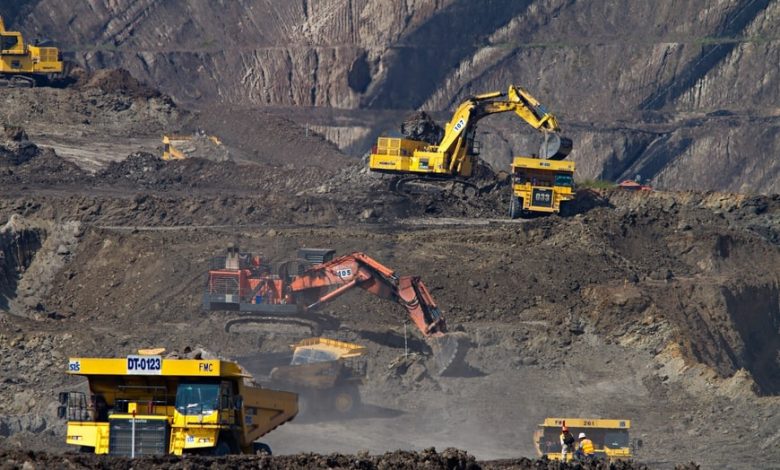New funding for developing nations’ coal exit needs better planning for workers

GLASGOW/TORONTO — South Asian nations need to create more effective plans to be able to utilize new funding to help developing countries speed up their shift from polluting coal to greener energy, researchers said this week.
At the UN COP26 summit in Glasgow on Monday, Prime Minister Justin Trudeau said Canada would provide up to $1 billion for a program backing a just transition from coal power to clean energy in emerging economies, run by the Climate Investment Funds (CIF).
On Thursday, the CIF launched the “Accelerating Coal Transition” (ACT) investment program, backed by pledges from the United States, Britain, Germany, Canada, and Denmark totaling nearly $2.5 billion, saying it was the first of its kind.
The first countries to benefit from the initiative will be South Africa, India, Indonesia and the Philippines, representing over 15% of coal-related emissions globally, with the aim of expanding it to more nations later.
Mafalda Duarte, CEO of the CIF, said markets were starting to trend “in the right direction,” away from supporting planet-heating coal, but the transition was not happening fast enough.
“This is especially true in developing countries, where the steep political, social and economic barriers remain. Overcoming these obstacles is what ACT is all about,” she added.
But energy experts told the Thomson Reuters Foundation money alone cannot solve the challenges faced in the developing world, where coal-fired electricity still runs nearly half of power grids and some nations are building new coal power stations.
“Just transition has huge financial needs in developing countries… But first, in India, we need to have just transition mechanisms, policies, plans in place,” said Srestha Banerjee, director of just transition at iFOREST, an Indian think-tank.
A “just transition” means ensuring that the wholesale economic transformation needed to swap fossil fuels for clean energy and tackle climate change does not leave workers and poorer parts of society bearing an unfair share of the burden.
“Unless there is [such] a plan … having money is not going to solve the challenge. In India, many local-level interventions fail because of lack of planning, capacity of implementation [and] issues of accountability, among others,” added Ms. Banerjee.
India depends on coal for about 70% of its electricity, is the world’s second-largest importer, consumer and producer of the fossil fuel, and has its fourth largest reserves.
Climate change activists say a failure to shift away from coal would go against Paris Agreement goals to limit planetary heating and would increase the risks of serious climate impacts.
Under the 2015 Paris accord, nearly 200 countries agreed to slash emissions to keep global temperature increases “well below” 2 degrees Celsius above preindustrial times.
But the planet has already warmed by just over 1?C, and is on track for about 2.7?C of heating as emissions continue to rise around the globe, scientists say.
Developing nations, though, say they cannot shift to a low-carbon economy without financial support from richer countries that are historically more responsible for carbon emissions.
Bangladesh, which earlier had plans to significantly increase its dependency on coal by building at least 18 coal-fired plants, decided to scrap ten of them in June this year.
“We are in a mixed position regarding coal,” said Khondaker Golam Moazzem, research director at the Centre for Policy Dialogue, a Bangladesh-based think-tank.
“We have to take a decision politically. How much coal do we want in our energy mix? If our government wants to depend more on renewable energy, in that case these funds [from donor governments] can help a lot,” he added.
Although Bangladesh is not part of the ACT program for now, Mr. Moazzem said such funding could help shelve remaining plans for new coal plants by compensating investors.
It could also be used to encourage private companies and the government to promote the use of renewable energy, he added.
SOUTH AFRICA PARTNERSHIP
On Tuesday, the United States, Britain, France, Germany and the European Union announced a separate partnership worth $8.5 billion to help South Africa, the world’s 12th biggest emitter of greenhouse gases, move away from coal and drastically reduce its emissions by 2030.
The donor governments said they would support South Africa’s efforts to pursue a “just transition” that supports workers and vulnerable communities, especially coal miners, women and youth, as the South African economy goes green.
Financing options will be sought for innovative technical developments and investments, including electric vehicles and green hydrogen, to create good jobs in clean energy, they said in a statement.
Alok Sharma, Britain’s senior official presiding over the COP26 climate talks, told journalists on Wednesday that more such initiatives would be needed in the coming years.
“It is about making sure that countries are supported to shift to clean energy, and no one is left behind as we consign coal to the history books,” he said.
The World Resources Institute, an environmental think-tank, said the South Africa plan was a “historic opportunity” that could spur innovation across sectors and support the economy.
iFOREST’s Ms. Banerjee said that while rapid improvements in green technology are often talked about, people overlook the corresponding health benefits, such as cleaner water and higher labour productivity.
“If we take all these into account, a well-planned coal transition over the next 20-30 years can be an overall net-positive development,” she added. — Naimul Karim/Thomson Reuters Foundation




